Bubbles





Some components for Bubble Tea
applications. These components are used in production in Glow,
Charm and many other applications.
Spinner

A spinner, useful for indicating that some kind an operation is happening.
There are a couple default ones, but you can also pass your own ”frames.”
Text Input
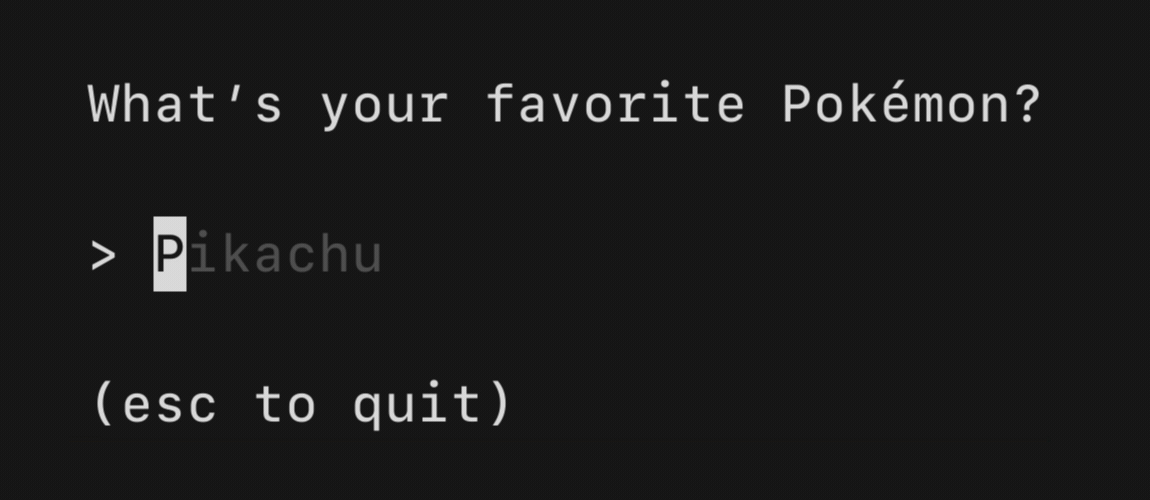
A text input field, akin to an <input type="text"> in HTML. Supports unicode,
pasting, in-place scrolling when the value exceeds the width of the element and
the common, and many customization options.
Progress

A simple, customizable progress meter, with optional animation via
Harmonica. Supports solid and gradient fills. The empty and filled
runes can be set to whatever you'd like. The percentage readout is customizable
and can also be omitted entirely.
Paginator

A component for handling pagination logic and optionally drawing pagination UI.
Supports "dot-style" pagination (similar to what you might see on iOS) and
numeric page numbering, but you could also just use this component for the
logic and visualize pagination however you like.
Viewport

A viewport for vertically scrolling content. Optionally includes standard
pager keybindings and mouse wheel support. A high performance mode is available
for applications which make use of the alternate screen buffer.
This component is well complemented with Reflow for ANSI-aware
indenting and text wrapping.
List
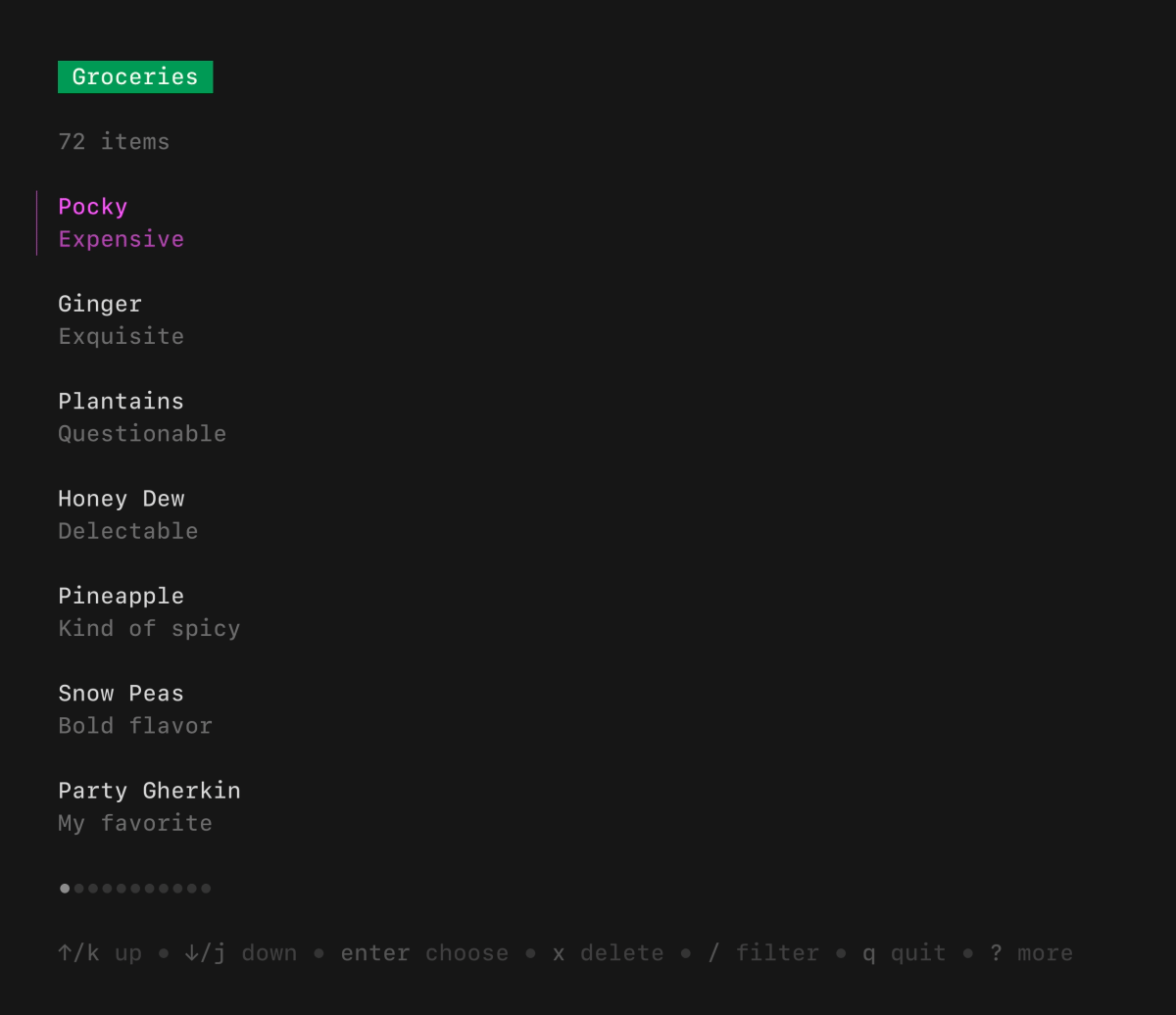
A customizable, batteries-included component for browsing a set of items.
Features pagination, fuzzy filtering, auto-generated help, an activity spinner,
and status messages, all of which can be enabled and disabled as needed.
Extrapolated from Glow.
Timer
A simple, flexible component for counting down. The update frequency and output
can be customized as you like.
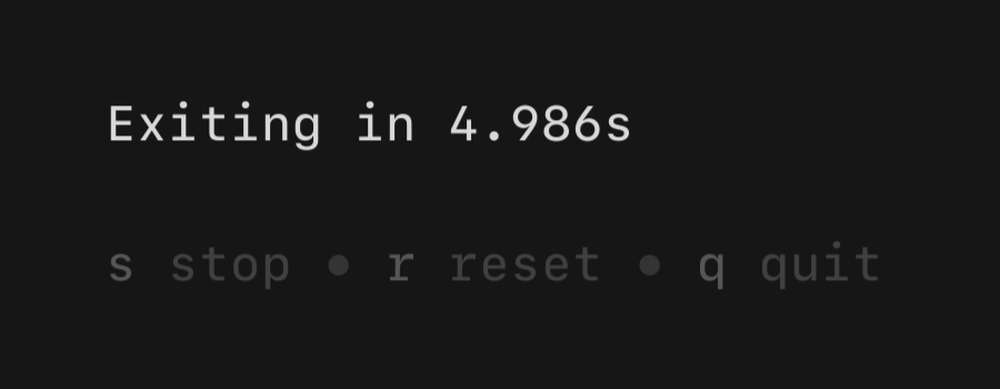
Stopwatch
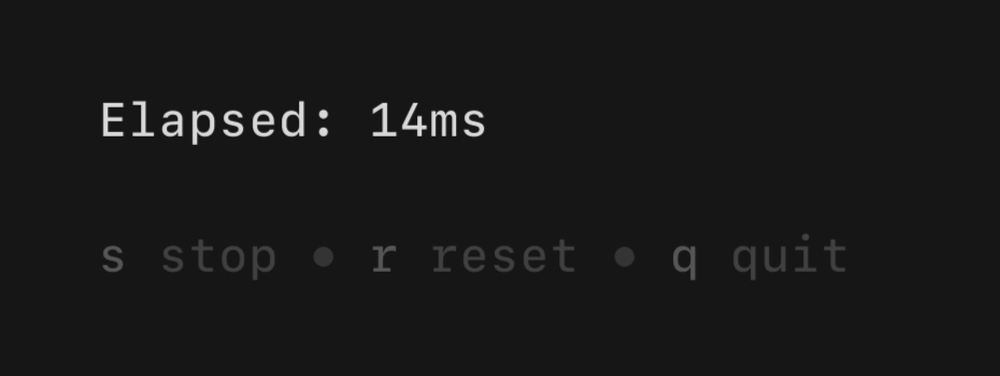
A simple, flexible component for counting up. The update frequency and output
can be customized as you see fit.
Help

A customizable horizontal mini help view that automatically generates itself
from your keybindings. It features single and multi-line modes, which the user
can optionally toggle between. It will truncate gracefully if the terminal is
too wide for the content.
Key
A non-visual component for managing keybindings. It’s useful for allowing users
to remap keybindings as well as generating help views corresponding to your
keybindings.
type KeyMap struct {
Up key.Binding
Down key.Binding
}
var DefaultKeyMap = KeyMap{
Up: key.NewBinding(
key.WithKeys("k", "up"), // actual keybindings
key.WithHelp("↑/k", "move up"), // corresponding help text
),
Down: key.NewBinding(
key.WithKeys("j", "down"),
key.WithHelp("↓/j", "move down"),
),
}
func (m Model) Update(msg tea.Msg) (tea.Model, tea.Cmd) {
switch msg := msg.(type) {
case tea.KeyMsg:
switch {
case key.Matches(msg, DefaultKeyMap.Up):
// The user pressed up
case key.Matches(msg, DefaultKeyMap.Down):
// The user pressed down
}
}
return m, nil
}
Additional Bubbles
- promptkit: A collection of common
prompts for cases like selection, text input, and confirmation. Each prompt
comes with sensible defaults, remappable keybindings, any many customization
options.
- mritd/bubbles: Some general-purpose
bubbles. Inputs with validation, menu selection, a modified progressbar, and
so on.
If you’ve built a Bubble you think should be listed here,
let us know.
License
MIT
Part of Charm.
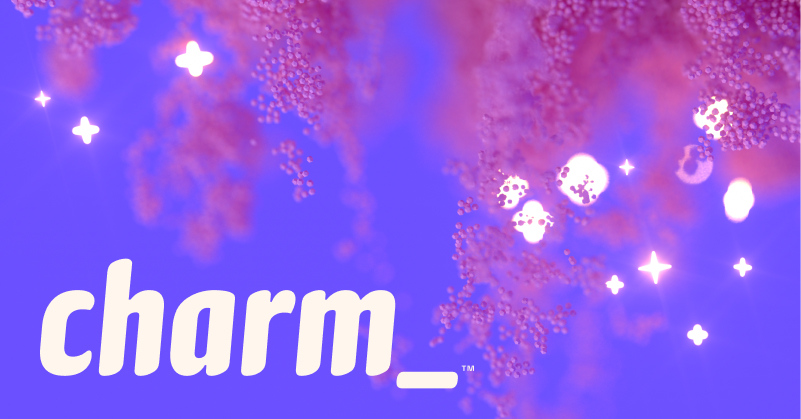
Charm热爱开源 • Charm loves open source
 Documentation
¶
Documentation
¶
 Directories
¶
Directories
¶











